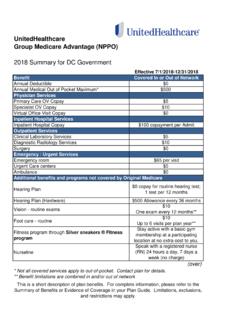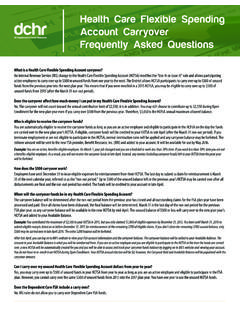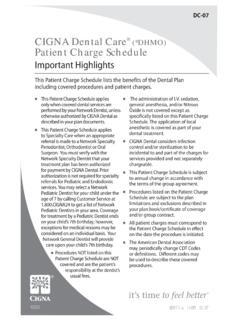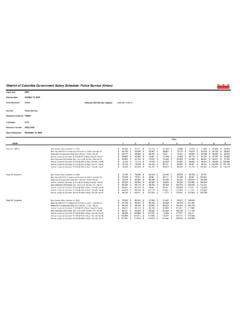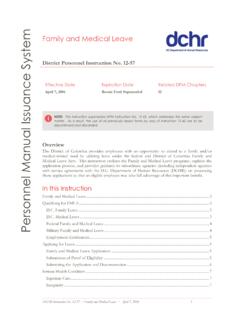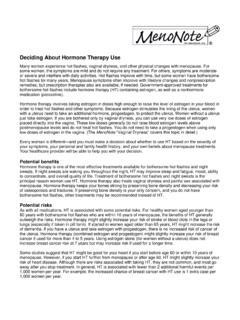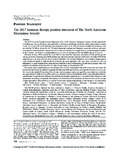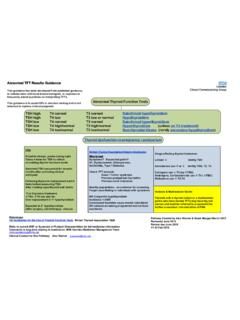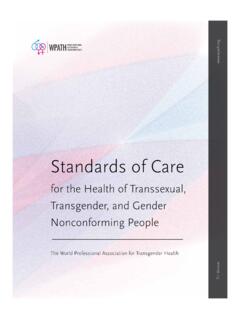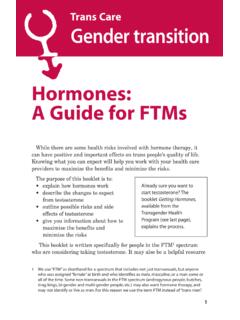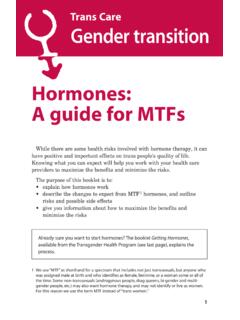Transcription of Adult Health Maintenance Guidelines - | dchr
1 Adult Health Maintenance Guidelines It is each provider s responsibility to decide on an individual patient basis the frequency of tests and examinations performed. This guideline is a distillation of recommendations from medical literature including, but not limited to publications by: the American Academy of Family Physicians (Summary of Policy Recommendations); the Advisory Committee on Immunization Practices; the Centers for Disease Control and Prevention; the American College of Physicians; the American Cancer Society; the Preventive Services Task Force; the Institute for Clinical Systems Information; the National Heart, Lung, Blood Institute; the American Diabetes Association; and the American College of Obstetrics and Gynecology.
2 These Guidelines apply to those who do not have symptoms of disease or illness. Those who display symptoms of disease or illness fall outside these Guidelines and should be treated accordingly. These are Guidelines , not a guarantee of coverage. Depending on the employee s policy, all or some of these preventive services may be covered with or without a member cost share. PHYSICAL EXAM 18-25 YEARS 26-39 YEARS 40-49 YEARS 50-65 YEARS 65+ YEARS Health Maintenance Exam (HME)* Every 5 years Every 5 years Every 2-3 years Every 1-2 years Every 1-2 years Height, Weight, BMI, BP Every 2-3 years Every 2-3 years Every 2-3 years Every 1-2 years Every 1-2 years Screen for obesity in all adults Body mass index (BMI) of 30 kg/m2 or higher should be offered/referred to intensive, multi-component behavioral interventions.
3 Additional Exams for Cancer (Thyroid, mouth, skin, ovaries, testicles, lymph nodes) Every 5 years with HME Every 5 years with HME Every 2-3 years with HME Every 1-2 years with HME Every 1-2 years with HME Clinical Breast Exam (CBE) Every 1-3 years Every 1-3 years Every 1-2 years Annually Annually Self Exams2 (breasts, testicles) Monthly Monthly Monthly Monthly Monthly Prostate Cancer3 See Footnote 3 See Footnote 3 See Footnote 3 *CBE, Pap, Pelvic are part of the well female exam and should be included with the complete physical exam. SCREENING 18-25 YEARS 26-39 YEARS 40-49 YEARS 50-65 YEARS 65+ YEARS Cervical Smear w/Pelvic Exam4 Screen for Sexually Transmitted Infections (Chlamydia: All sexually active females under age 24 and older females if at increased risk; Gonorrhea: All sexually active women if at increased risk for infection.)
4 Syphilis: All persons at increased risk for infection) Annually if at risk HIV (all adults to age 65, once) Annually if at increased risk HCV Infection (one-time screening for adults born between 1945-65) Once Mammography One baseline 35-40 Every 1-2 years Annually Annually Colorectal Cancer: Fecal Occult Blood Test (FOBT)5 Annually Annually Sigmoidoscopy5 Every 5 years Every 5 years Colonoscopy5 Every 10 years Every 10 years Screening for Smoking, Alcohol, or Drug Use6 With HME With HME With HME With HME With HME Osteoporosis Screen females7 , males8 Baseline7 Baseline8 Depression Screening9 With HME With HME With HME With HME With HME for Abdominal Aortic Aneurysm10 One time Annual Screening and Counseling for interpersonal and domestic violence in all women Annually Annually Annually Annually Annually Lung Cancer Screening11 Annually Annually SUGGESTED LABORATORY TEST 18-25 YEARS 26-39 YEARS 40-49 YEARS 50-65 YEARS 65+ YEARS Lipoprotein Pane Age 20 Every 5 years Every 5 years Every 5 years Every 5 years Glucose Screen all adults with a sustained BP (treated or untreated) of > 135/80 1 Screening may be discontinued at age 70 or when life expectancy is less than 10 years, but may continue if life expectancy is greater than 10 years.
5 2 Clinicians need to teach appropriate self-exam techniques and encourage monthly self exams. 3 Perform risk assessment on all men 50 and older, and discuss testing options, risks, and benefits. For African American men and men with a family history of prostate cancer, begin risk assessment at age 40. 4 Screen for cervical cancer in women ages 21-65 years with cytology (Pap smear) every three years. For women ages 30-65 years who want to lengthen the screening interval, screen with a combination of cytology and human papillomavirus (HPV) testing every five years. 5 On average risk patient, conduct FOBT annually & flex sigmoidoscopy every five years or colonoscopy every 10 years. Consider upper age limit for screening of 75 or where curative therapy would not be offered due to life-limiting co-morbidity.
6 6 Screen and provide behavioral counseling to decrease misuse in adults. 7 Screen in women 65 and older, or in younger women whose fracture risk is equal to or greater than that of a 65-year-old white woman who has no additional risk factors. 8 Periodically assess risk factors for osteoporosis in older men above age 65. Order bone density exam for those at increased risk and if patient is a candidate for drug therapy . 9 Clinicians should do a depression screening on their patients at every HME, and more often in patients with a history of depression, unexplained somatic symptoms, co morbid psychological conditions, substance abuse, or chronic pain. Consider the following questions: Over the past two weeks have you felt down, depressed, or hopeless?
7 And Over the past two weeks have you felt little interest or pleasure in doing things? An affirmative answer to either question requires more investigation. 10 Males 65-75 years old who have smoked at any time in their lives need a one-time ultrasound. 11 Annual low-dose CT for anyone 55-80 years who have a 30 pack/year history and currently smoke or quit within the last 15 years. Discontinue the screening when the patient has not smoked for 15 years. Counseling and Education In general, some counseling/education should be carried out at each preventive care visit and at other times based on clinical discretion. This can be provided by the PCP, nurse, or other Health professional or Behavioral counseling to promote a healthful diet and physical activity for cardiovascular disease prevention in adults with cardiovascular risk factors Energy/caloric balance Nutrient balance, supplements All females should be counseled to maintain adequate calcium Because a woman may not know she is pregnant until later.
8 It is recommended that all women of childbearing age get milligrams of folic acid daily Weight loss counseling for the obese Sexual Practices STD prevention High intensity behavioral counseling to prevent STD for adults who are at increased risk of STDs Unintended pregnancy prevention Physical Activity Counseling for obesity prevention and correction Preventive Care Visits Dental Vision Hearing Injury Prevention Seat belt use, helmet use Fire safety Firearm storage Recommend exercise or physical therapy and vitamin D supplementation to prevent falls in community-dwelling adults aged 65 or older who are at increased risk for falling Mental Health Awareness Depression/anxiety awareness Coping skills/stress reduction Skin Cancer Counsel young adults up to age 24 who have fair skin about minimizing their exposure to UV radiation to decrease risk of skin cancer Aspirin Discuss the use of aspirin to prevent coronary heart disease with patients who are at risk hormone replacement therapy Women 45 and older should be counseled regarding hormone replacement therapy Osteoporosis Counsel women on risks and
9 Prevention Breast Health Offer BRCA testing and possible referral to genetic counseling to women whose family history is associated with increased risk for deleterious mutations for BRCA 1 OR 2 genes Discuss potential benefit and harms of chemoprevention with women at high risk for breast cancer and at low risk for adverse effects of chemoprevention
